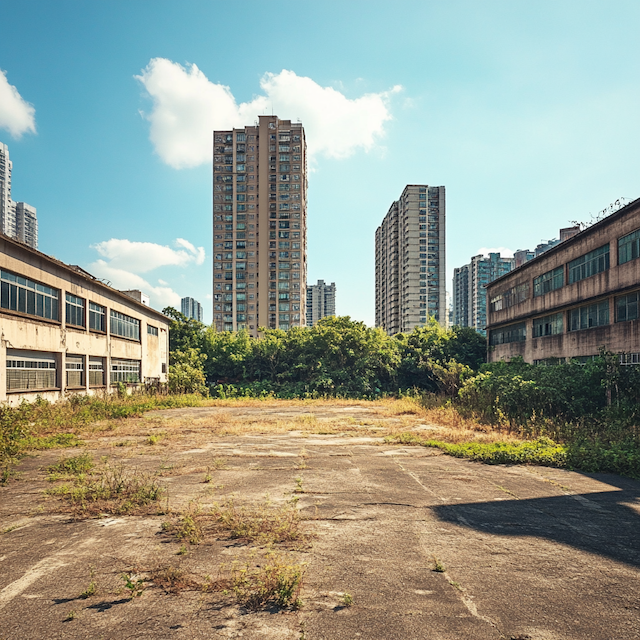Starting or expanding a metal business is an exciting endeavour, but one of the most critical decisions you’ll face is determining the best type of space to operate from. Should you buy land and build your facility? Rent a space? Or purchase land with pre-existing infrastructure? Each option comes with its pros and cons, and the right choice depends on your business model, financial position, and long-term goals.
In this guide, we’ll break down the considerations to help you make an informed decision for your metal business.
Option 1: Buying Land to Build Your Facility
Pros:
- Complete Customisation: Owning land allows you to design and build a facility tailored to your metal business’s specific requirements, including customised storage, processing lines, and fabrication bays.
- Asset Ownership: Land ownership is a long-term investment that appreciates in value over time. This can be beneficial for your business’s equity.
- Control Over Operations: With ownership, you’re not tied to the restrictions of a landlord. You have complete autonomy over how you use the space.
Cons:
- High Initial Costs: Purchasing land and constructing a facility requires significant upfront capital, which could limit cash flow for other business operations.
- Time-Consuming: Building a facility can take months or even years, delaying your operational timeline.
- Long-Term Commitment: Owning land ties your business to one location, which might not be ideal if market conditions change or if relocation becomes necessary.
Best For: Businesses with strong financial backing, a clear long-term vision, and a need for highly customised infrastructure.
Option 2: Renting Space for Your Metal Business
Pros:
- Lower Initial Investment: Renting requires far less upfront capital than buying land or a facility, freeing up funds for equipment, inventory, or hiring skilled labour.
- Flexibility: Leasing allows you to adapt to changing business needs. If you need to downsize, upscale, or relocate, it’s far easier with a rental agreement.
- Quick Start: Many rental facilities come with existing infrastructure, allowing you to start operations almost immediately.
Cons:
- No Ownership: Monthly rent payments build no equity for your business.
- Limited Customisation: Altering a rented space can be restricted by the terms of your lease.
- Potential Cost Increases: Rent prices may increase over time, impacting your long-term budget.
Best For: Start-ups, businesses testing a new market, or those with limited capital looking for a low-risk entry point.
Option 3: Buying Land for Sale with Existing Infrastructure
Pros:
- Faster Setup: Purchasing land with pre-existing facilities can significantly reduce the time needed to get your operations running.
- Cost Savings: Depending on the property, you could save money compared to buying land and building from scratch.
- Ownership Benefits: Like buying undeveloped land, owning such a property builds equity and gives you complete control.
Cons:
- Limited Flexibility: Existing infrastructure might not perfectly align with your operational needs, requiring modifications that add to costs.
- Higher Upfront Costs: While potentially cheaper than building from scratch, buying a developed property still demands substantial initial capital.
Best For: Established businesses with immediate operational needs or those seeking long-term stability and ownership benefits.
Key Factors to Consider Before Making Your Decision
- Budget: Assess your financial position, including available capital and funding options. Can you afford to buy, or is renting a safer choice for now?
- Business Stage: Start-ups often benefit from renting due to lower costs and flexibility, while established businesses may find buying more advantageous.
- Growth Plans: If you anticipate rapid growth, renting provides flexibility, whereas owning offers stability.
- Market Conditions: Consider the real estate market in your area. Is land appreciating quickly? Are rental prices stable?
- Operational Needs: Analyse your space requirements for storage, processing, and fabrication. Do available rentals or properties meet these needs, or will you need customisation?
- Location: Proximity to suppliers, customers, and transportation hubs (such as ports or rail networks) is crucial in the metal industry.
How Metal Park Can Help
At Metal Park, we understand the unique challenges of running a metal business. That’s why we’ve created a comprehensive solution that combines the best aspects of ownership and flexibility:
- Customisable Rental Spaces: From covered warehouses to open yards, we offer pay-as-you-go storage and fabrication facilities tailored to your needs.
- Integrated Services: Our 5 million sq. ft. hub includes processing lines, fabrication bays, and a business centre, so you have everything under one roof.
- Strategic Location: With direct access to Khalifa Port, Etihad Rail, and major GCC highways, Metal Park ensures seamless connectivity for your operations.
- Manpower as a Service: Skilled labour is available on demand to support your projects, reducing hiring overheads.
Whether you’re just starting out or looking to expand, Metal Park provides the flexibility and support you need to thrive in the metal industry.
Final Thoughts
The decision to buy land, rent a facility, or purchase land with infrastructure is a significant one that depends on your business’s specific needs and goals. Evaluate your options carefully, considering both short-term operational demands and long-term growth plans.
By partnering with solutions like Metal Park, you can enjoy the best of both worlds: the flexibility of renting with the operational efficiency of a purpose-built industrial hub. Contact us today to explore how we can support your metal business journey.

